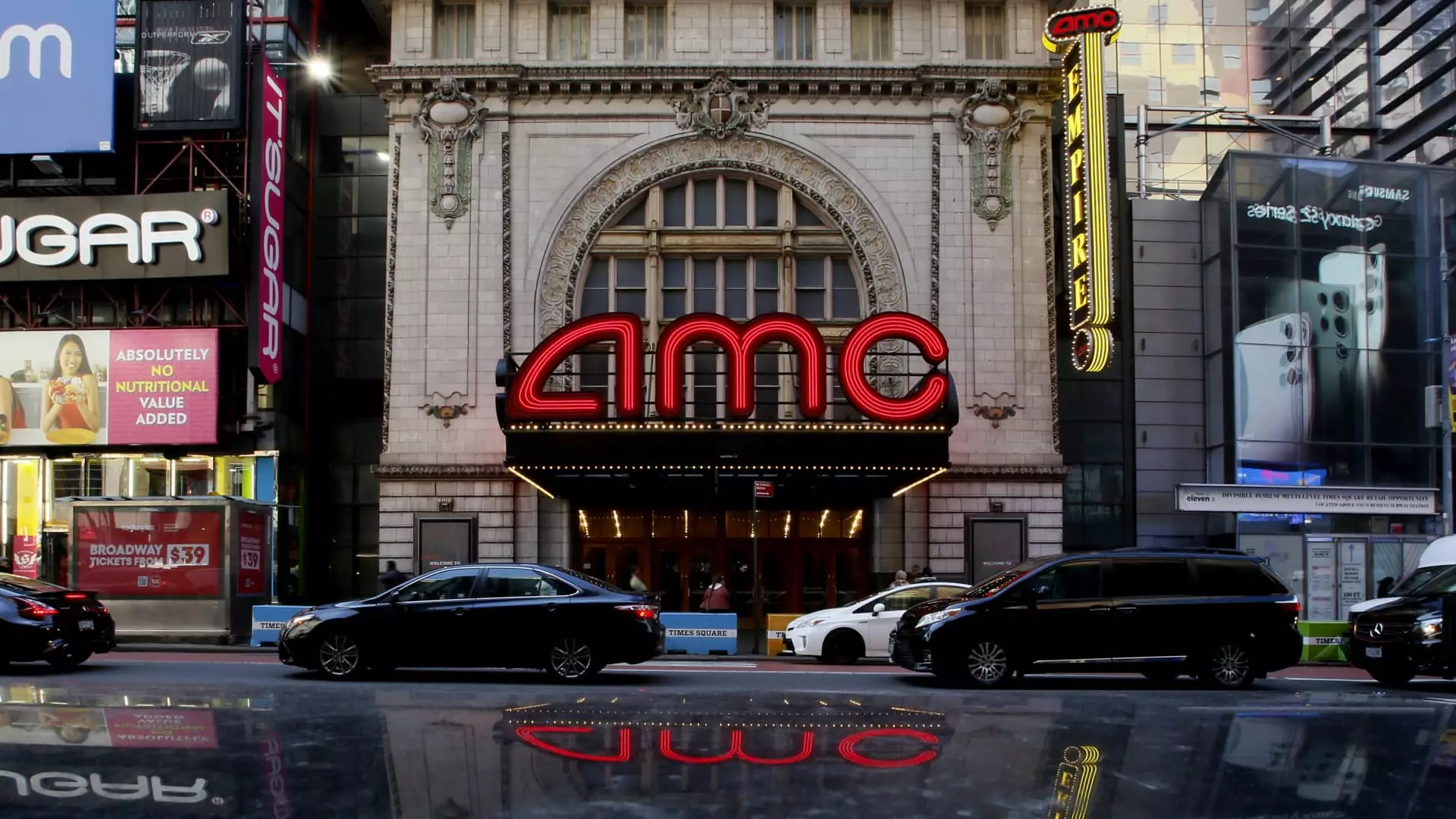AMC Entertainment, the embattled movie theater chain, has seen a surge in its stock price recently due to the return of Keith Gill, also known as “Roaring Kitty.” This surge comes after Roaring Kitty inspired a massive short squeeze in 2021 that pushed GameStop stock to unprecedented highs. The return of Roaring Kitty has led to AMC shares more than doubling since Friday’s close, rising above $6 in afternoon trading on Tuesday. The last time retail investors rallied around AMC in this manner, the movie theater chain was able to avoid bankruptcy. Now, with a chance to put a dent in its substantial debt load, AMC faces a crucial moment in its history.
CEO Adam Aron made significant acquisitions during his tenure at AMC, including theater chains Carmike, Odeon, and Nordic, totaling about $3 billion. While these acquisitions expanded AMC’s theater network, they also increased the company’s debt load. The onset of the pandemic exacerbated AMC’s financial challenges, forcing the company to raise additional debt to survive and increase its cash reserves. As of early 2022, AMC has paid down nearly $1 billion of its debt, leaving around $4.6 billion still outstanding. The upcoming debt obligations in 2024 and 2025 may not present significant hurdles, according to analysts. However, the looming $2.96 billion debt due in 2026 requires immediate attention and negotiation with lenders.
The recent surge in AMC’s stock price presents an opportunity for the company to raise equity funds that can support liquidity, debt reduction, and potentially secure institutional support. By capitalizing on the momentum generated by retail investors, AMC can improve its financial position and negotiate more favorable terms with lenders. The company recently raised $250 million through an equity offering, indicating investor confidence in its future prospects. With the majority of the stock sold before the recent price jump, AMC is positioned to leverage its renewed market interest to strengthen its balance sheet.
Despite the positive developments in its stock price and equity offering, AMC continues to face operational challenges. The box office is still recovering from pandemic-related shutdowns and production delays, impacting AMC’s revenue streams. The company’s fixed expenses, such as rent and payroll, are eating into its potential profits, making it essential to address its debt obligations promptly. Analysts emphasize the importance of using the current market conditions to bolster AMC’s financial health and secure its long-term sustainability. By renegotiating debt terms, extending maturities, and reducing interest expenses, AMC can navigate its current financial challenges and position itself for future growth.
The resurgence of retail investor interest in AMC Entertainment presents a unique opportunity for the company to overcome its debt burden and strengthen its financial position. By leveraging the support of retail investors, renegotiating debt terms, and capitalizing on rising stock prices, AMC can navigate its current challenges and pave the way for long-term success in the evolving entertainment industry.


Leave a Reply